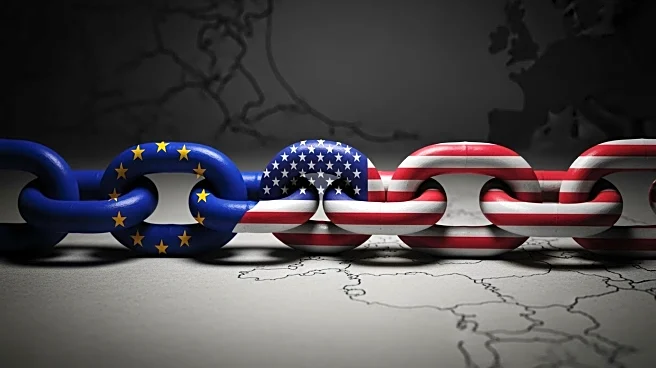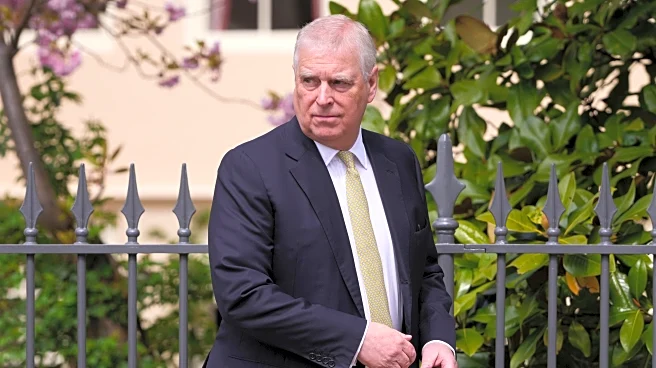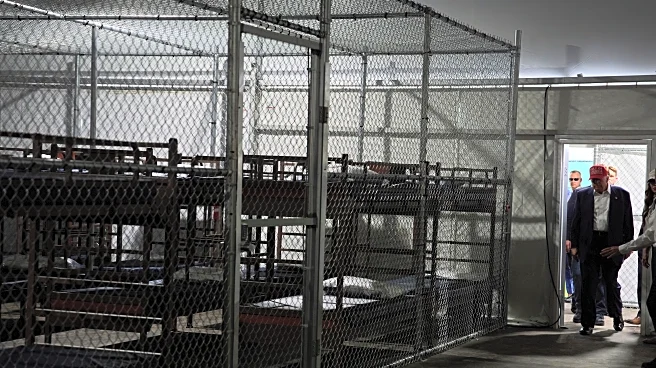What's Happening?
In a significant development, the European Union (EU) and the United States have announced new sanctions against Russia. This move coincides with Ukrainian President Volodymyr Zelenskyy's visit to Brussels,
where EU leaders are also considering a plan to seize $160 billion in frozen Russian assets to support Ukraine's defense efforts. The sanctions, which include targeting major Russian oil companies Lukoil and Rosneft, mark the first time President Trump has imposed such measures since the full-scale invasion of Ukraine. The EU's decision to potentially use frozen Russian assets as collateral for a $160 billion loan to Ukraine is seen as a bold step, reflecting the ongoing geopolitical tensions and the EU's commitment to supporting Ukraine.
Why It's Important?
The imposition of new sanctions by both the EU and the U.S. represents a significant escalation in the international response to Russia's actions in Ukraine. These measures are expected to impact the Russian economy, particularly its oil sector, which is a critical component of its national budget. The potential use of frozen assets to finance Ukraine's defense underscores the EU's strategic shift towards more aggressive financial measures. This move could have far-reaching implications, including potential risks to European financial stability and investor confidence. The sanctions also signal a unified Western stance against Russia, potentially influencing future diplomatic and military strategies.
What's Next?
The EU's consideration of using frozen Russian assets as collateral for a loan to Ukraine is a complex and controversial proposal. If implemented, it could set a precedent for international financial policy and asset management. The decision may face legal and diplomatic challenges, as it could provoke retaliatory actions from Russia or other nations. Additionally, the effectiveness of the sanctions in altering Russia's behavior remains uncertain. The international community will be closely monitoring the situation, as further developments could influence global economic and political dynamics.
Beyond the Headlines
The decision to use frozen Russian assets raises ethical and legal questions about the ownership and use of seized funds. It highlights the tension between immediate geopolitical needs and long-term financial principles. The move could also affect international relations, as countries may reconsider their financial ties with Europe. Furthermore, the sanctions and asset seizure could influence global perceptions of economic security and the rule of law, potentially affecting future international agreements and collaborations.










